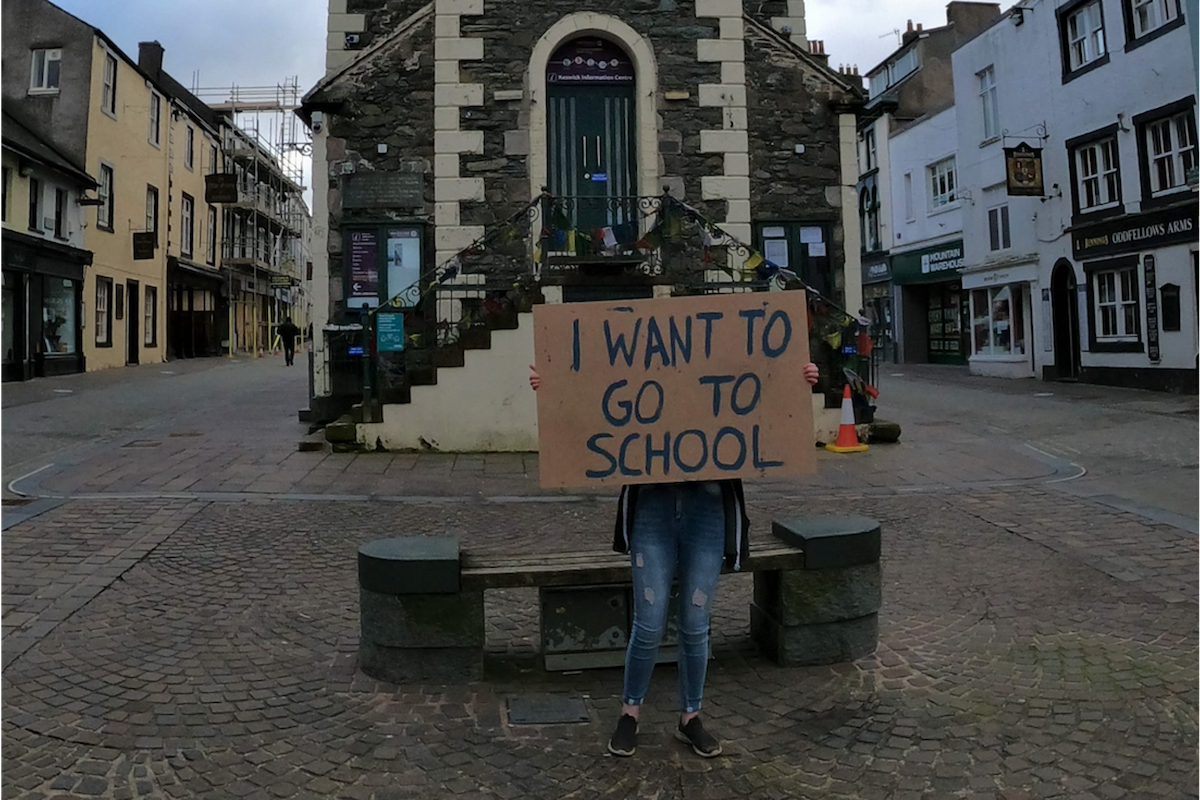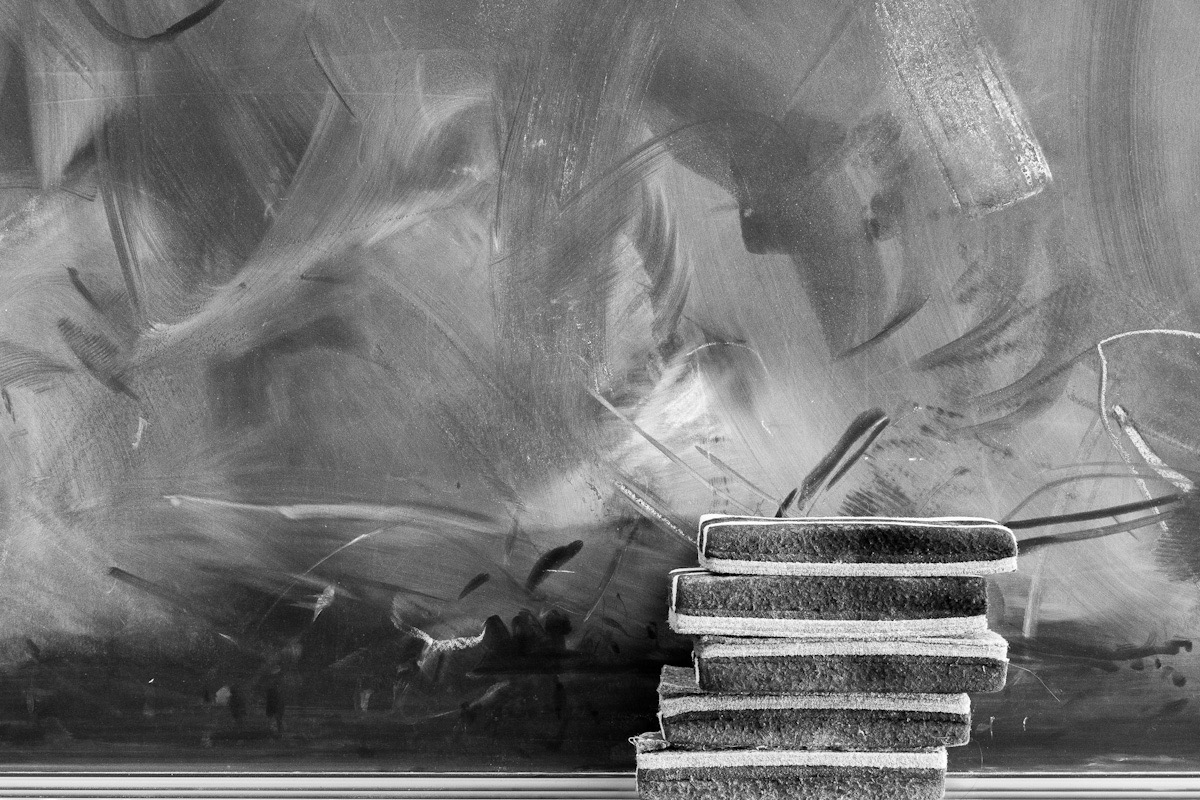Charter Schools
Why Is Biden Trying to Punish Charter Schools for Their Success?
Charter schools are publicly funded institutions that charge no fees and have more flexibility than regular government schools in how they manage their affairs and run their programs.

As yet, it remains to be seen exactly what President Biden has in store for America’s network of charter schools. Following the Democratic Party primaries, the Biden-Sanders Unity Taskforce called for accountability for charter schools and a ban on federal funding of for-profit charters—approximately 12 percent of the total. Increasing accountability does not necessarily sound like a hostile act against charters but the taskforce is specific that this will involve “requiring all charter schools to meet the same standards of transparency as traditional public schools, including with regard to civil rights protections, racial equity, admissions practices, disciplinary procedures, and school finances.” For those of us who have followed the charter school debate over the years, this statement appears to be framed with the concerns of these schools’ opponents in mind.
Charter schools are publicly funded institutions that charge no fees and have more flexibility than regular government schools in how they manage their affairs and run their programs. They are similar to free schools and academies in England and the model has been adopted with varying degrees of commitment and success in other parts of the world.
Until recently, there was considerable bipartisan support for charters in the US, but that has begun to wane as charters have been dragged unwillingly into America’s wider culture war.

I have not always been a fan of charters. It’s pretty clear that the change that needs to happen to make government-funded schools more effective is a change in the classroom. In this context, what is the point of monkeying with the way schools are governed? It seems like administrative tinkering that fails to address the real problem. The politician’s syllogism, as first expressed in the vintage British TV show Yes Prime Minister, seems apt:
- We must do something
- This is something
- Therefore, we must do this
However, over the years, the evidence has accumulated and I have revised my position.
For example, it appears that charter schools use their freedoms to do things that regular publicly funded schools are either unwilling or unable to do. A recent study summarizing the effects of “No Excuses” charter schools—a specific model of charters common in urban centers in the US—estimates that charters provide significant gains in reading and mathematics. Importantly, the studies in the summary made use of the fact that many charters are oversubscribed and are obliged to admit students via a lottery. This makes it possible to compare the outcomes of those admitted with those who applied but were not admitted, and this removes the possibility that the effect is due to ambitious families, who are more inclined to seek admittance to charters, providing a better home environment.
This finding is broadly supported by a study conducted by the economist Thomas Sowell of over 100 charters in New York City that share the same building with regular public schools. In analysis after analysis, Sowell finds evidence of the charter schools generally outperforming co-located public schools in English and mathematics.

You may think that success in addressing such a wicked problem as the educational underachievement of disadvantaged students would be celebrated, with politicians climbing over each other to take the credit. But that is not the case and it’s important to understand why.
The first clue comes from the label that some of the most successful charters have been given—”No Excuses.” Originally, this term referred to the adults in the classroom. In other words, teachers were not supposed to dismiss poor academic achievement by saying, “Well what can you expect from kids with this kind of background?” Instead, they were to have high expectations of all students, regardless of the challenges they may face. This is certainly the founding principle of many charter school networks.
Unfortunately, this term has been conflated with the behavior policies adopted by many charter schools. People assume that “no excuses” means that a child who turns up at school without the right equipment, because she had to sleep at a grandparent’s house in order to avoid an abusive father, should be punished because the school accepts, “No Excuses!” In reality, there are always exceptions to any school policy but the term has been poisoned.
I have worked in challenging schools in London and I cannot overemphasize the importance of tackling poor student behavior. One problem is that negative experiences of classroom behavior may persuade teachers to leave the profession or move to a less challenging school and this is a problem worth considering by education bureaucrats. However, the vast majority of the suffering experienced by those in schools where behavior problems are not addressed is borne by young people. It manifests as bullying, assault, fear, and a loss of learning opportunities. The first duty of any school is to provide a safe environment.
If you are sipping a soy latte in a prosperous exurb and you read that a charter school has instituted a policy where students are expected to walk through the corridors silently, it is almost a reflex to adopt the mantle of Rousseau and bemoan the need to control students or seek their compliance with petty rules. Yet, if you have ever worked in a challenging school you will know just how unsafe corridors can be. If not literal warzones, they can bear a striking resemblance.
Unfortunately, charter schools’ successful behavior policies are now being undermined. In the aftermath of the police killing of George Floyd last summer, two charter school networks saw the need to issue statements that they were reviewing their approaches. The way that charter schools seek to manage the behavior of students seems to have been conflated with issues of race. Many of the supposed virtues previously promoted by these schools—such as hard work—are now seen by some as associated with “whiteness.” The KIPP (Knowledge is Power Program) chain has, for instance, dropped its motto of, “Work hard. Be nice.” It is with this in mind that I read the Biden-Sanders statement about making charter schools more accountable for “civil rights protections, racial equity… disciplinary procedures.”
And yet the ability for parents from disadvantaged backgrounds to opt out of a failing local public school and opt in to a charter is still popular with a large section of the US population. A 2019 poll found, for instance, that 53 percent of African American Democrats were in favor of charters, a larger proportion than the 40 percent of Democrats generally.

The final objection to charter schools may be reflected in the Biden-Sanders allusion to admissions. For many, these schools are selective institutions. But this is not selection in the sense you may imagine. They do not require pre-admissions tests or interviews. However, by the simple act of parents having to opt-in, they are “selecting” from a more informed group. It is then also claimed that the strong discipline policies nudge out those students who cannot learn how to behave appropriately. So that’s another form of “selection.” Success Academy is the chain most associated with stories of actively managing out challenging students in this way.
However, it is not clear that this is a feature of all charter schools. And regular public schools are also in a position to suspend or exclude students who pose a danger to others. It is possible that traditional public schools do not make enough use of their powers to manage students and that this is what is driving down behavior and driving up parental interest in the alternatives.
Charters are not perfect. Like pretty much everyone else involved in education, charters are just as guilty of subscribing to the myth that English and mathematics are generic skills that can be targeted to the detriment of content, even if more enlightened schools are changing tack. And if there were plenty of public schools available that had high academic standards for those who sought them and a safe learning environment then the moral case for an alternative in the form of charters would disappear, along with their enrolments.
The fact is that charters provide a solution for some students in an imperfect system. Either forcing them out of business or forcing them to become just like regular public schools through “accountability” measures will not help anyone. It will simply level-down and see the loss of the modest gains for some disadvantaged students that the charter school system has achieved.






